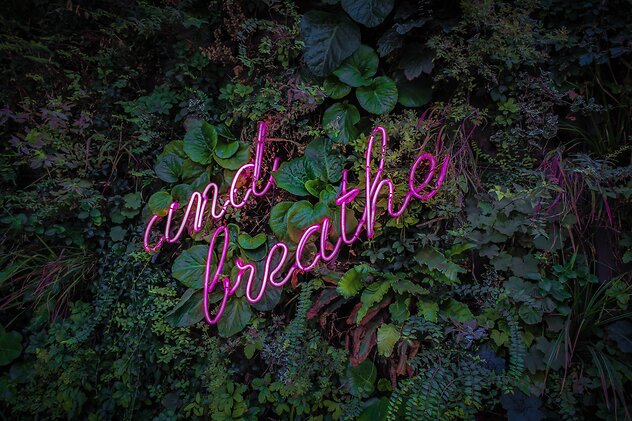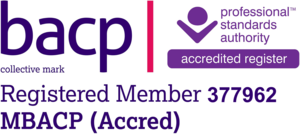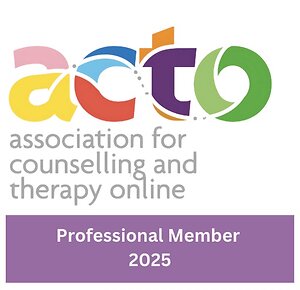
The mind-body connection: holding onto emotions in your body
2nd January 2021
It was certainly a strange year, and at the start of a new, and hopefully better one, I just want to say that we all need to acknowledge that we made it through an extremely challenging time, which is far from over. For all of us, this year has been about loss to some or a greater extent—loss of identity, loss of job, loss of social contact, loss of relationship, loss of loved ones...I grieve with those who have experienced these losses. This has also been a collective experience and has also brought about new connections and collaborations. I have collaborated and ‘met’ colleagues and participants for my research project that I would not have had the opportunity to ‘meet’.
I hope as the weather improves, and the vaccine is rolled out, the new shoots of Spring will bring a renewed sense of growth and beginning.
With best wishes,
Karen
Those of you who I have had the pleasure and privilege to work with will know I often work somatically, in other words, with the body.
Whether you work with me in person or online, we might look at how you ‘carry’ or ‘hold’ your worries, stress, anxiety, depression etc.. You may not be experiencing physical pain as such, but there may be a tension in your body. for example you might clench your jaw, or tense your feet.
Pain can be debilitating and cause stress and anxiety, but the converse is also true. Stress and anxiety for example can cause your body to suffer pain or exacerbate or increase existing pain conditions.
Listen to that ‘feeling in your gut’. You may call it instinct or intuition (the gut brain axis). It is all connected, so, when you feel fearful, and have a sick feeling in your stomach, or ‘butterflies’ or suffer from IBS, there might be an emotional reason there somewhere. It may literally be trapped in your body. We can work together with that to release it and to understand the emotions behind them.
Let me be clear, I am not saying that all physical pain comes from emotion, nor am I saying that all emotional pain is somatised, or felt in the body. It can, however, be helpful to identify what is happening within your body. Some clients have ‘been told’ they are depressed, for example, when actually, their physical ailments are weighing down on them and stopping them from doing those things they found enjoyable or necessary to daily life.
Other clients sometimes say they feel ‘numb’ or are not sure how they feel or what they are experiencing. If we start with their body sensations, they are often able to describe their bodily experiences: quickening pulse, heart pounding, churning stomach, pounding head or aching or stiff shoulders, for example. Becoming aware of these sensations can be the first step in understanding what our bodies are trying to tell us.
Of course, the opposite is true too. Some clients feel the emotion but have not made the connection between that and their emotional and/or physical pain or condition.
Wherever you are at, there are many ways of learning to calm our nervous systems. This does a number of things. It dials down our sensitivity and calms our bodies and reactivity. Something as simple as breathing techniques may have an advantageous effect on our nervous systems, calm our emotions and decrease pain conditions. Of course, it is not as simple as it seems, and we are all very complex individuals and all have different issues and conditions and react differently. What I might suggest for one client, will not work at all for another, for example. It may take a little time to find what is right for you, and it can be hard work, but if you are motivated to improve your life and feel better in your body and mind, a holistic approach is going to work for you.
I will never judge, criticise or shame you. (You might have your own internal critic and may wish to consider whether that critic is helpful or too harsh – this is a subject for a future blog). This is about learning more about what may be triggering you, and what you are willing to change. Maybe that is having more time for self-care which, of course, is very individual. You may be very good at taking care of others, dealing with a stressful job, and all around multitasking but you may find it more difficult to take care of yourself.
Sometimes it is about processing what you can’t change, which involves grief, loss and ultimately acceptance—and finding new ways of managing and coping and to minimise or alleviate feeling overwhelmed.

Anxiety: ourselves, others and the planet
11th June 2020
Anxiety on a personal, national and global level
I do not think that it is an exaggeration to say that we are all suffering from anxiety at present. It manifests in many ways, for example, as foreboding, or a generalised unease, or overwhelming panic and fear. Our anxiety is personal to each of us. It may be about matters we tell ourselves are trivial, and then we become anxious about being anxious. It may be an overwhelming feeling of being stuck or helpless or paralysing panic. The point here is that we all experience anxiety differently and become anxious about different issues. I am not going to tell you what anxiety is or attempt to provide a definition. You can find that elsewhere. This is about your experience. If you are reading this, you know what anxiety means to you and how it is affecting you personally.
You may have been suffering for many years, or anxiety may be borne out of the current pandemic crisis and its fallout, as well as the increasing racial tensions. Social media is a positive force for news and debate and keeps us informed but it is also divisive and anxiety provoking.
Why would we not be anxious? We are in the middle of a pandemic which is having untold impact on our lives and the lives of our loved ones. The economic toll on personal, local, national and global levels will also affect our physical and mental health. Uncertainty about our individual, as well as collective, future is on our minds. The racial issues people of colour have endured daily have been laid before us in all their palpable and insidious ways. Blatant racism alongside unconscious bias. Indeed, whatever our colour and background, we may experience anger, frustration, shame, sorrow, fear, shock and anxiety, to name a few.
You may be anxious about your own mental or physical health or your loved ones. You may be concerned about your finances, reduced or lack of income. Often anxiety involves loss and inevitably change. This may involve, for instance –
loss by bereavement
- loss due to a relationship break up
- loss of a relative
- loss of a friendship
- loss of a job
- loss of a career
- loss associated with retirement
- loss associated with illness
- loss associated with chronic pain
- loss due to moving location
- loss of faith
- loss of belief
Not surprisingly we often describe ourselves as ‘lost’. Yes, we have lost something and we may feel broken.
You may experience anxiety when you are faced with something new or different. You may become acutely anxious when you are faced with a choice and the ‘right’ path is unclear.
You may experience anxiety when you are thinking about your identity, whether this be the way you think about yourself, how you define yourself how you express your racial, religious, gender and sexual identity and how you are perceived.
You may experience a sense of being stuck, at a loss, confused, panicked, helpless... You may also be experiencing depression. The two often come together.
What can we do about it?
As I said above, we are unique individuals who experience and act and react differently. This means that what one person might find immensely helpful, might help you a little, or might make you feel more anxious. Here are some suggestions which might help:
Therapy
Therapy is helpful because it gives you the ability to focus solely on your experiences with a trained professional who can work with you to ease your anxiety. I work on an individual basis, not sticking to one particular therapeutic model or framework for each client. Working alongside you, at your own pace, we could focus on the here-and-now, examining what you struggle with, identify your triggers and set realistic aims. You might want to examine experiences from your past which may have had an impact which you may or may not be aware of. These experiences may be useful as an insight in understanding what is happening for you now. We sometimes carry patterns of behaviour with us which may have originally protected us, for example, but now they keep us trapped in an cycle, of which we no longer have need. We examine them from an open, curious and non-judgmental perspective so that you may learn to face your anxieties and live more meaningfully.
Be kinder to yourself
We need to come at this from a different perspective. If you are experiencing overwhelming anxiety, putting pressure on yourself to ‘do’ something about it can often increase and heighten your existing anxiety. This can also increase self-criticism and a sense of not being good enough. Listen to that internal dialogue. If your inner critic is a bully, see if you can dial the volume down a bit. Whilst sometimes we see our inner critic as a positive motivating force, at other times it can be destructive. Becoming more aware of your inner critic, in the first place, can be really helpful. This is something we often work on in therapy. It is surprising how harsh our inner critic can be and not so surprising how huge an impact this critical voice has on us.
Don’t forget to breathe!
Yes breathing does help. It might seem obvious, but slowing down your breathing will slow down your heart rate. Taking a slow deep breath in and then slowly breathing out, and repeating three times can be calming. There are a few mindfulness apps that I recommend to clients; most do find them useful. However, clients who are experiencing overwhelming anxiety occasionally report that they find mindfulness meditation too difficult when they are in a heightened state. Some return to it later on.
There are many others, but the three most popular ones are Calm (some free content and a free trial), Headspace (some free content, free for the unemployed, NHS workers, and teachers at present), and Insight Timer ( always free)
Taking a daily walk and getting out in nature can also assist here. Some find yoga really helpful. There are loads of free yoga videos on youtube and I recommend Yoga with Adriene. She also has a website. Basically anything that involves regulated breathing can be helpful – it is about what fits for you – perhaps singing, playing a wind instrument, swimming, dancing even!
Concentration
Concentrating on anything can be difficult when you are anxious, even something you love doing. If there is something that you enjoy doing, you could try to concentrate in small chunks – reading, painting, knitting, wood working, gardening, whatever it is, if it does not feel like pressure – try it for a short period of time, even 5 minutes, until you find that you can tolerate 10 minutes and so on. Building up slowly doing something you enjoy might show you that you can break the cycle of anxiety, even for a very short time.
Journaling or drawing
Some find that writing down how they feel daily for a set period of time can help. You have had that period of worry and now you can leave it there until tomorrow. Others find that writing helps them express what they could not out loud. It also captures how you are feeling in the moment, and can be enlightening reading it back. Others write stories or poems.
You may be more expressive through another medium. You may find it easier to sketch, draw, paint, sculpt or mould your experience.
Hope
If you are reading this, you probably have a sense of hope that things will get better for you. Even if you feel despairing, on some level you have hope that you can have a more fulfilling and less anxious life.
Contact me
I offer a free 20 minute session for you to ask questions and see if you think we can work together. I look forward to hearing from you!

Online therapy: therapeutic connection
4th April 2020
Whether you have had face-to-face therapy in the past, or whether this is the first time you are considering therapy, you will find that accessing therapy during the Coronavirus crisis is generally limited to online or telephone as advised by government guidelines. However, do not think that online therapy is a poor substitute for face-to-face therapy: there is increasing evidence claiming that online therapy can be just as effective as face-to-face.
Many therapists have been working online for years and it is growing in popularity.
Nonetheless, it is a different experience than face-to-face and will not be suitable for all. As it may be the only form of therapy available to you right now, it would be helpful to have an initial discussion with one or more therapists so you can consider whether it could work for you.
What is online therapy?
Terms like cyber therapy, e-therapy, online counselling, teletherapy and telemental health are interchangeable.
There are a variety of online options available. Whilst you do not have to be tech savvy, some basic knowledge will make things easier.
video
Video therapy is the most popular form of online therapy and is usually conducted via Skype, Zoom, WhatsApp, or FaceTime, etc. Some therapists only use one platform, whilst others will be more flexible and will offer a number of different platforms. This is the most similar to face-to-face as you are able to see your therapist’s face, and they will see yours.
audio
Telephone counselling also works similarly to face-to-face, but via the telephone or audio only, through platforms like Skype.
text-based
Using instant messaging or text, you arrange with your therapist a time to start a chat, and work in the same way as you would face-to-face.
email
This is an asynchronous method of therapy, meaning that, there will be a series of email messages exchanged between you and your therapist, responding at a time convenient, usually within 24-48 hours of receipt, but there will be no fixed time for he session as with video, telephone and messaging.
Some therapists only work online via video/webcam, some will additionally offer sessions via telephone, whilst email and messaging are not as mainstream.
How to find an online therapist
Some therapists only work face-to-face as a rule, and only work online if, for instance, their clients are away on business. More and more, however, therapists are embracing the online platform and with the current situation many are engaging with a new way of working. Qualified therapists with the British Association for Counselling and Psychotherapy (‘BACP’), as well as the other leading UK professional bodies, have guidelines which members must follow to assess their competency to additionally provide online therapy, this includes additional and adequate training, knowledge and proficiency for online working. You can find qualified and accredited online therapists on directories such as BACP, Counselling Directory or Psychology Today. Furthermore, therapists will indicate on their websites and profiles that they offer online therapy, and how they provide it.
A number of qualified and accredited therapists have additionally undertaken courses with a minimum of 80 hours certified training and are also accredited and registered with the Association for Counselling and Therapy Online (‘ACTO’), although this is not yet a requirement for therapists providing online therapy. You can find their register of therapists here. ACTO confirmed to me at the time of writing that they currently have 210 members, double the members they had two years ago. It is anticipated that this number will increase dramatically, especially in light of the current situation.
How do sessions differ from face-to-face?
Sessions work in much the same way. You will have a scheduled appointment time and the framework for face-to-face therapy will apply.
It is always a good idea, whether working online or face-to-face to see if your therapist will offer a brief telephone conversation initially. Alternatively, this can all be done via email. If you agree to proceed, there will be information that the therapist needs to provide you with, such as their privacy policy and terms and conditions, as well as gathering some initial information about you. The first session, whichever medium you choose, will be similar to an initial session face-to-face. Any paperwork which has not been completed will need to be discussed and agreed and the therapist will ask you questions about your background, medical history and why you are seeking therapy and together you can discuss what you realistically hope to gain from it.
You will agree who will contact who (or initiate the chat), so that you are not both trying to reach each other at the same time, and what to do in case of interruptions in service. Clients working with video will need to remember that although they are in their own home, the same boundaries apply. For instance, you wouldn’t arrive to your therapist’s office in your pajamas or be eating your breakfast, would you?! The point here is that you do not take calls during your session and try to limit any distractions.
Starting online therapy
technology
You will need adequate internet connection to minimise connection difficulties. Make sure you have a landline or good mobile phone connection, even if you intend to use video calling. You may need this as a backup.
A computer is recommended if using video calling as this will replicate face-to-face more closely and feel more familiar. Check that your connection is adequate and that your camera (computer or separate webcam) show your face and shoulders and that the sound works. You may need to download software such as Skype; your therapist will discuss this with you prior to your first session.
before the session
Take a few minutes before the session to get comfortable and take a few deep breaths.
Make sure that you are in a quiet room where you feel comfortable and where you will not be overheard if you are using video or phone.
during the session
Communicate with your therapist if you do not hear or understand something. It is really important as your therapist may not immediately pick up on this as the visual cues may be missing.
after the session
Do take some time for yourself directly after the session. You are immediately in your surroundings and you may will need to take a bit of time before immediately launching back into your world. If you share a computer or device, ensure that you close or delete any relevant pages from your session to maintain your privacy.
Advantages to online therapy
There are benefits to online therapy, and there are significant differences as well.
accessibility
Firstly, you are not limited to therapists practicing in your area. You may live in a remote location where services are limited or non-existent. If there is a particular approach you have read about, or are familiar with, you can access that therapist easily, no matter where they are located in the country. Furthermore, online counselling is accessible for clients who are physically disabled or are unable to leave their home.
flexibility and convenience
As there is no travel time, you save time and do not have to concern yourself with getting there and back on public transport, on foot, or by car. Furthermore, both you and your therapist will have more flexible availability. You can arrange the same time each week, but equally if your work schedule is not consistent, it is easier to vary days and times each week.
suitability
Some clients find it easier to talk and are more comfortable with one of the online options. You may find that you share sensitive information more quickly than face-to-face, or conversely, it may take longer. Do communicate any concerns with your therapist as they come up so that they can support you. Online therapy also may be especially suited to children or teenagers who may be used to expressing themselves online and find this easier than speaking face-to-face, as well as adults with anxiety and agoraphobia, for example.
Issues to consider
You will also need to ensure you keep your information private from your end, especially if you are using a shared computer, as discussed above.
non-verbal communication
Subtle visual cues, such as body language, are limited with video calling, and are completely absent in text and phone therapy. This is not to say it is an inferior way of working, it is just different. It might take some time to adjust, especially if you are used to face-to-face therapy.
technology glitches
These can disrupt the flow of a session which can then be difficult to settle back in to. However, you and your therapist will always have a contingency in place and will attempt to minimise any disruption.
suitability
Currently, online therapy may be your only choice of therapy, but it is not suitable for everyone. Discuss any concerns with the therapist so they can best advise how to support you. As with face-to-face therapy, your therapist should have your GPs details as well as an emergency contact, together with your consent to waive confidentiality if they consider you to be at risk.
security and confidentiality
You may be aware of the discussion in the media recently around which video platforms are safe. However, platforms are ensuring that they provide secure connections and as soon as a weakness is discovered they are doing their best to increase security. The Information Commissioner’s Office gives up to date information on acceptable platforms and therapists take advice directly from them as well as their professional organisation. Generally speaking, online therapy is safe; therapists are subject to GDPR guidelines and take client confidentiality and privacy very seriously. Your therapist will discuss the risks and any concerns you may have.
Is online therapy effective?
Yes! Deeply meaningful therapeutic relationships do develop online and can support change and healing.
One person’s experience is unique to them, so as in face-to-face therapy, what works well for one individual may not work for another. If you are not sure, find a therapist that works with a variety of different platforms and options. Always bear in mind that that the therapist needs to be right for you too. Although therapists abide by the same or similar guidelines and may have similar training and approaches, they are unique individuals too. If you think they are not for you, try another. Some clients like to try a session with a few different therapists before they decide. Give it a try, and think about what might work best for you.






